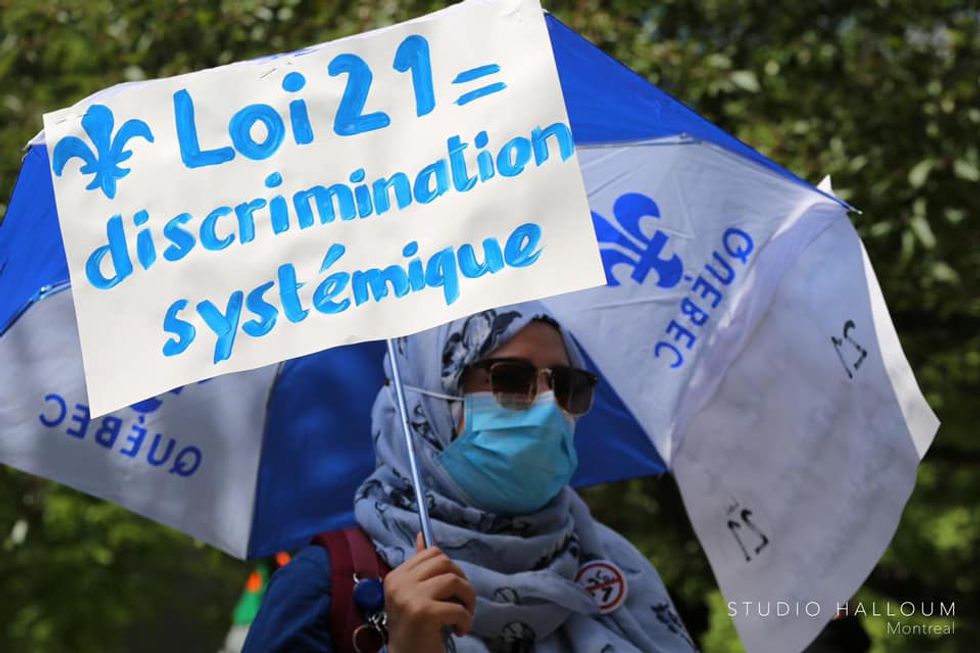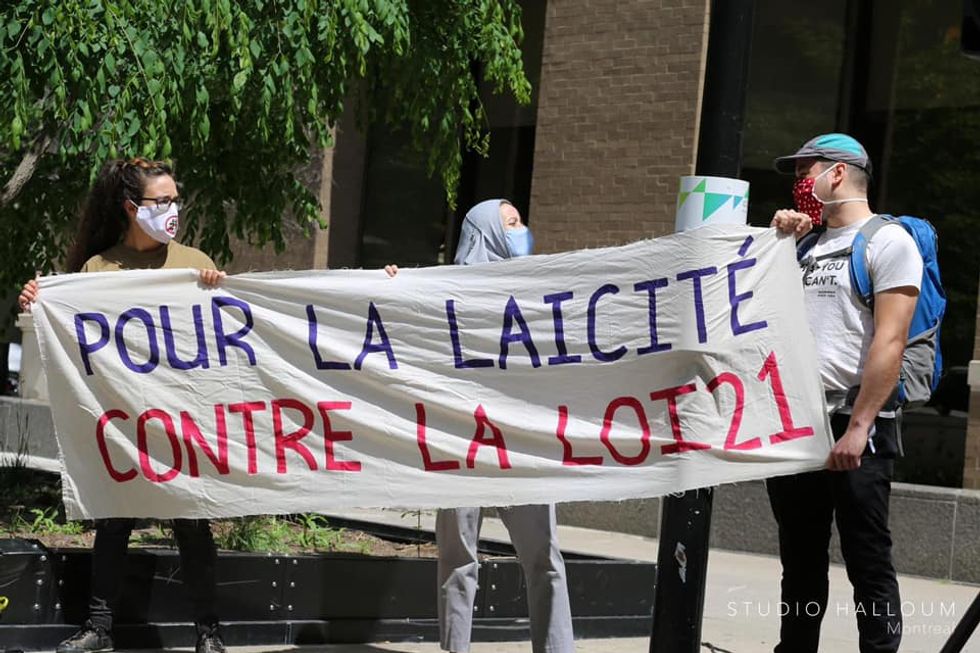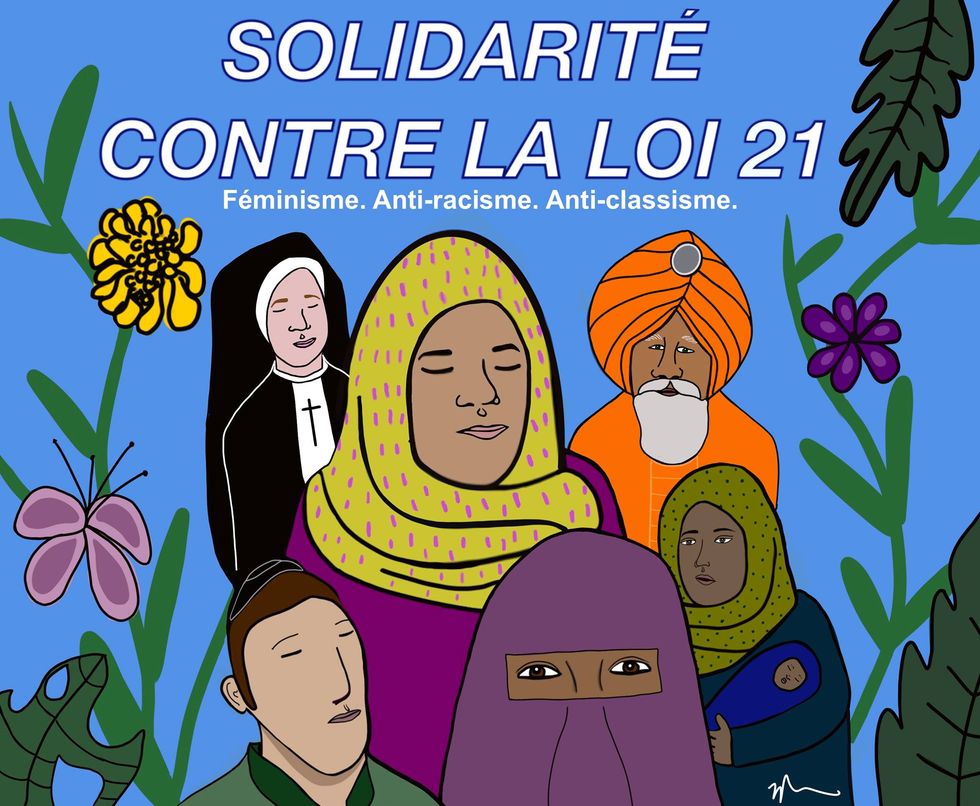Bill 21 has garnered a lot of attention — from the media to the proverbial water cooler — since its inception in 2019.
But since the noise has died down in recent months, here's an update on why this protest is happening right now, as well as a reminder of what you need to know about Bill 21.
Editor's Choice: The Name Of The Black Man Shot & Killed By Montreal Police Thursday Is Sheffield Matthews
What is Bill 21 again?
 Studio Halloum | Facebook
Studio Halloum | FacebookThe bill — which was passed into law in June 2019 — was tabled by the CAQ as "an Act respecting the laicity of the State."
Laicity is another word for secularism, placing an emphasis on the separation between religion and state.
The law bans all religious symbols from the public sector, including hijabs, kippahs, crosses and turbans, which cannot be worn by teachers, police officers and other public service professionals.
The law also states that people who attend government offices to receive services must do so with their face uncovered "when doing so is necessary to allow their identity to be verified or for security reasons." The only exceptions are for those Quebecers who cover their faces due to a handicap or for health reasons.
Opposition groups say the law infringes on religious freedom.
It is important to remember that a "notwithstanding clause" makes it more difficult for this bill to be challenged for violating the Canadian Charter of Rights and Freedoms.
Why is the issue resurfacing now?
The Canadian Civil Liberties Association (CCLA) and the National Council for Canadian Muslims (NCCM) filed a joint lawsuit challenging Bill 21 to prove that it's unconstitutional.
The case is scheduled to be heard by the Superior Court of Quebec in Montreal on November 2.
According to the CCLA, the trial will last around five weeks and will have two parts: first witnesses then legal arguments.
Three other challenges will be heard together with theirs.
This is a big moment for the CCLA and the NCCM because their previous attempts to get Bill 21 suspended have failed.
The Court of Appeal of Quebec ruled against voiding the bill in December 2019, and the Supreme Court of Canada declined to hear the case.
What are the details of the protest?
 Studio Halloum | Facebook
Studio Halloum | FacebookThe "peaceful socially distant sit-in" will take place on November 2 outside the Palais de Justice, at the same time as the Superior Court hears arguments against the bill.
It's intended as an act of "solidarity with the plaintiffs and affected community members," says a Facebook post.
The protest was organized by the McGill Muslim Law Students' Association, the Non à la loi 21 committee, the McGill Muslim Students Association and RadLaw McGill.
On Facebook, protest organizers say the law not only discriminates against religious professionals in Quebec but also shows prejudice against visible minorities, especially Muslim women.



